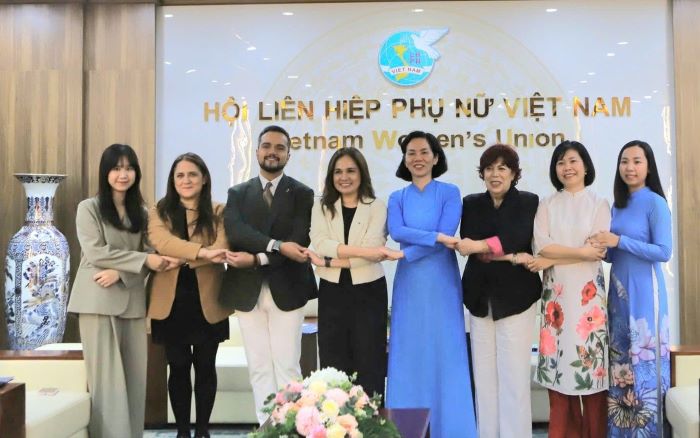Two-year review of Community Hygiene Output-Based Aid Project

Being a key partner of the project, the VWU has collaborated with related sectors and agencies such as health, agriculture and rural development, the Bank for Social Policies and directed provincial WUs to coordinate with local authorities and related sectors to build a group of collaborators-communicators to mobilize households to build latrines in order to reach the target of 100,075 latrines for poor people. Over the period from June 2012 to November 2014, in the 10 project provinces, 73,489 poor, near poor and disadvantaged households had been mobilized to build and use sanitary latrines, 19,039 middle-income and better-off households invested in building sanitary latrines by themselves and 21 communes had increased the rate of sanitary latrines to over 30%. Significant outcome of the project has changed the hygiene habit in families, contributing to improving living conditions and health of family members and creating self-confidence of poor families, particularly poor women.
The above results have been achieved thanks to the effective support of different sectors and agencies. In particular, the health sector provided support in developing IEC materials, sanitary latrine models and organizing community-based kick-off events. The Vietnam Bank for Social Policies gave priority in providing a clean water and environmental sanitation loan fund of over VND 300 billion for the project’s beneficiaries. Local governments at different levels provided support, not only in terms of giving guidelines and creating mechanism but also by directly engaging in implementing the project for example motivating households and providing construction materials for building latrines.
From the pilot project, the
The challenges facing the implementation process have required WUs at different levels to become more dynamic and creative. The project has selected active, enthusiastic staff and energetic, responsible communicators, as well as mobilized resources from other sectors such as knowledge and communication materials from the health sector, capital from the Bank for Social Policies and from the available funds of the Women's

Building sanitary latrines using the support from CHOBAproject
The biggest success of the project is information dissemination to and mobilization of poor, near poor and disadvantaged families to build sanitary latrines. With the target of project supported 100,750 latrines for poor households and others built under larger impacts of the project, the VWU will significantly contribute to achieving the target of 65% of rural households to build and use sanitary latrines by 2015 under the National Target Program on rural clean water and environmental sanitation. CHOBA project has helped not only improve the capacity of WUs at different levels but also enhance the VWU’srole in building new rural areas, implementing the National Target Program on rural clean water and environmental sanitation and the campaign of "Building the family of 5 without-s and 3 clean-s".







